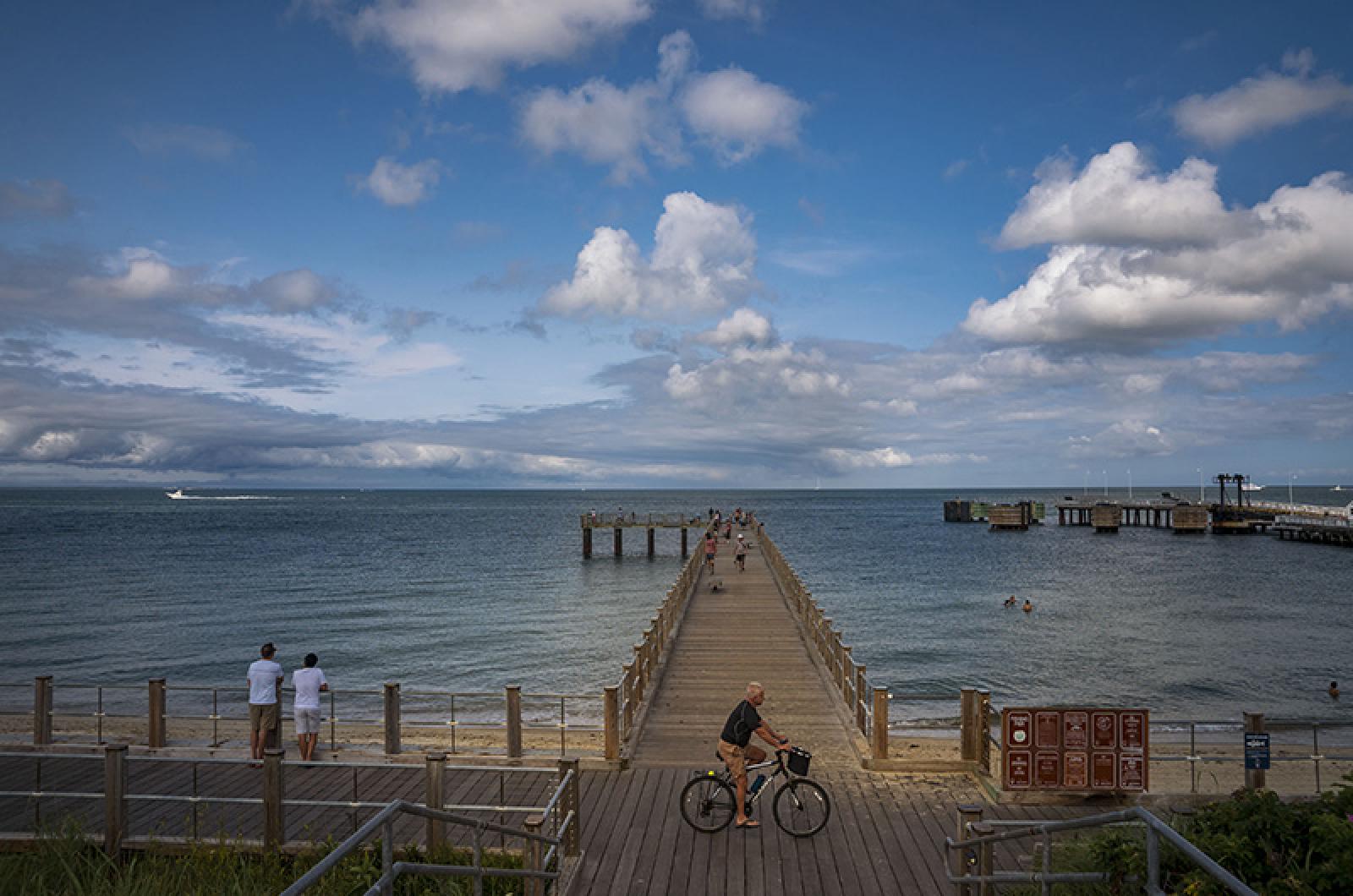As a heat dome persists over the American West, an untamable wildfire rages over southern Oregon and record hot temperatures and water shortages make life in the West difficult, floods in much of Europe — Germany, Belgium, The Netherlands, Switzerland, parts of England and now China — have also had a devastating effect.
We on the East Coast of the United States remain blessed, at least at present. Our time will come. We will certainly feel the impacts of the water shortages and heat in the West when not as much fresh produce, almonds or apples are available from California, Oregon and Washington State this winter. And hurricane season is just beginning, with the threat of wildfire as well.
Climate change is happening faster than we had expected and its effects are only going to magnify.
The big question for all who are concerned and trying to help with this is how to get our countrymen mobilized, to get all Americans to work together to do as much as we can to save our species from reaching an end and not just continue with business as usual. There is no more usual. I know that sounds harsh but I believe that is where we are headed even though I wish it were not.
I was heartened therefore to see a new book from an author with a long association with the Natural Resources Defense Council and the ability to reach a broad audience. The book, titled Imagine it!, asks on its back cover: “Do you want to do more to ensure our planet is protected for future generations?” “Is the amount of heat waves, floods, droughts and wildfires really beginning to worry you?” I thought from these quotes that the book would suggest substantive changes people could make to help stop this runaway train we are on. Instead, it misses the opportunity to communicate a critical message.
The book has some good ideas, drawing heavily on information that the NRDC has compiled. It asks people to cut down on the use of plastics, reduce personal water use and the consumption of animal foods whose production relies on huge amounts of water, be mindful of chemicals that have infiltrated many aspects of our lives, be more conscious of clothing purchases and buy less, look for ways to use less paper. And it makes a few suggestions about transporting ourselves more mindfully. All these things are important.
Where the book falls short is in failing to address the importance of switching away from fossil fuels as the number one way to reduce our impact on climate change. Suggestions such as buying low energy-use bulbs and updating to more energy efficient appliances are a given at this point. We need to do much more and fast. There is no mention of moving to all-electric houses with renewable energy supplying that electricity. There is no mention of the role that regenerative agriculture can play in restoring our soils: ensuring that what rain does fall gets absorbed in the soil so that droughts are more manageable, using methods that don’t require the input of large amounts of fossil fuel produced fertilizers.
Here on the Vineyard, we have begun to focus on both of these important steps, understanding that transitioning away from fossil fuels is crucial to our addressing the climate crisis before us.
An Islandwide resolution to reach 100 per cent renewable by 2040 has passed in five of Island towns and will be voted on in Oak Bluffs next spring. An energy working group that is a part of the MVC climate action task force analyzed Island energy use and made thoughtful projections as to how our electrical use will increase as we transition to 100 per cent electric from renewable sources- for our heating and cooling, hot water and vehicles.
Island Grown Initiative and Andrew Woodruff have been experimenting with regenerative agriculture strategies such as no-till farming at their site, and some Island farmers have begun employing these practices on their farms.
Many other towns across the state and country are working on similar goals.
Go to the Island climate action website and others as well, to see how you can make meaningful changes. Please start on them now. Give this your all. Our species needs it, our planet deserves it.
Kate Warner lives in West Tisbury.







Comments (2)
Comments
Comment policy »